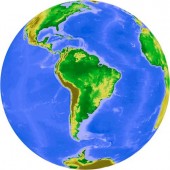
Abstract: In this article, we discuss the importance of Indigenous traditional ecological knowledge as the foundation of sustainability education, and we describe the need for, and successful efforts to, begin building an Indigenous Traditional Ecological Knowledge initiative at a research university. We share the guiding theoretical framework of our work, and the three goals of the initiative. We note the tensions involved in crafting a vision statement that a diverse group of faculty, staff, and students can all uphold in our collective work. We conclude with a description of our next planned steps for the initiative, and our hopes that this work will help decolonize sustainability education.
Continue Reading
Two intellectual powerhouses from South America, Gudynas and Acosta make the case for a new way of understanding human fulfillment, authentically Latin American in origin with indigenous roots—the idea of el Buen Vivir. We cannot translate their ideas “the good life” or “quality of life,” both thoroughly Western concepts, and we must hope that el Buen Vivir, with its entire notion of well living, fulfillment and plenitude in connection with other humans and the elements of the landscape becomes incorporated into a healthy and sustainable idea that replaces development. Gudynas and Acosta make the case that these ideas are emerging from their indigenous roots and have been a big part of the political, social and economic success of the “new left,” as evidenced by their foundational role in the constitutions of Bolivia and Ecuador.
Continue Reading